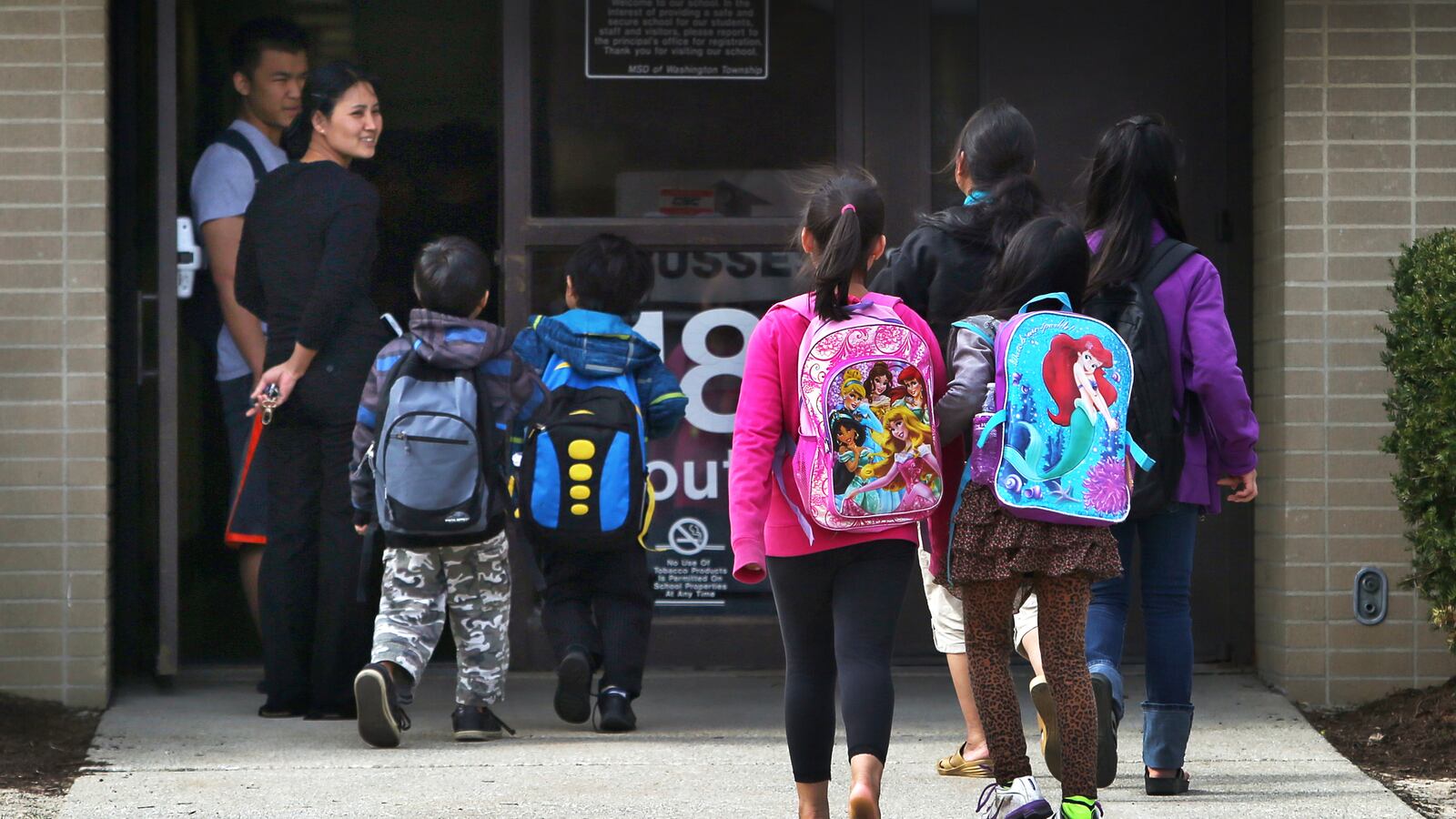Indiana Gov. Eric Holcomb received pushback Thursday from fellow Republicans when he suggested eliminating teachers’ performance-based bonuses without another plan to earmark money for increasing teacher pay.
Educators have bashed those bonuses as being unfairly distributed and too small, but state Senate appropriations chairman Ryan Mishler, R-Bremen, said he worried that getting rid of the $30 million annual bonus pool would kill the only dollars specifically designated for teacher pay.
“My only concern is in some schools, that’s the only pay increase that some teachers see,” Mishler said. “So I still like the idea that that money goes straight to teachers.”
Holcomb’s budget plan presented Thursday would boost overall funding for Indiana schools without designating specific funds for teacher pay, a hot topic ahead of this year’s legislative session. Instead, budget chief Micah Vincent suggested that Indiana schools would have to use a 2 percent funding increase each year to pay teachers more.
“We would be hopeful and expectant that we see increases to teachers through that,” Vincent said.
The $30 million that the state has been spending each year on merit bonuses — also known as the Teacher Appreciation Grant — would be split into $10 million toward tax credits for teachers who spend their own money on school supplies, and $20 million added to the general school funding pot.
Holcomb’s approach of asking districts to spend overall funding increases on teachers aligns with a proposal that Republican lawmakers have been advancing to shift more money to teachers by having schools spend less on administrative costs. But some education officials and school leaders say that’s not an effective plan for increasing teacher pay and continue to call for additional money for raises.
Democrats said they are proposing directing $315 million toward increasing teacher salaries by 2.5 percent each year.
Republican state schools chief Jennifer McCormick said she wanted to see money set aside for teachers, and she worried about removing the designated funds for teacher bonuses. The bonuses created controversy in the past for being tied to ISTEP scores and graduation rates, leading to high-performing teachers in some wealthier districts receiving far more than similarly high-performing teachers in poorer districts. The formula has since been tweaked and is now based on teacher evaluations and student enrollment.
“For the schools that applied, for those teachers who qualified, it was at least some money,” she said. “Now, they weren’t getting rich on that money, but it was more of a show, a token to say, hey, we appreciate what you’re doing, from the state of Indiana.”
McCormick warned that an overall funding increase doesn’t guarantee an increase in teacher salaries, particularly because school funding is based on enrollment, so some districts might not see increases in state dollars.
Still, she said Holcomb’s proposed increase on K-12 funding was “much better news than we were expecting.”
It was initially unclear how much more money lawmakers could give to schools. That’s because the state’s struggling Department of Child Services is requesting a hefty funding increase to deal with heavy caseloads tied to opioid abuse.
With those needs, an earlier estimate suggested that the state would not have enough money to fund increases in school funding. But those calculations included outdated numbers that put Indiana at having slightly less in revenues.
Holcomb is proposing increasing school funding by 4 percent over two years — 2 percent each year — adding $143 million in the 2019-20 fiscal year, and $289 million in 2020-21.
That’s a slightly larger increase than in the last budget cycle, which raised school funding by a little more than 3 percent.
Holcomb’s proposed budget would also allocate $14 million each year for school safety. It would not increase funding for the state’s pre-Kindergarten voucher program.
Lawmakers still need to hash out details in the coming months on the school funding formula, which doles out dollars based on factors such as the number of students that schools serve from low-income families or with special education needs. They are expected to approve a final budget by the time the legislative session ends in April.


